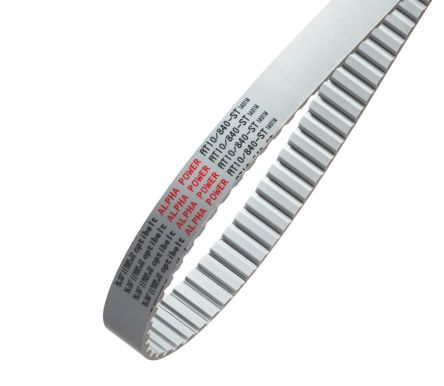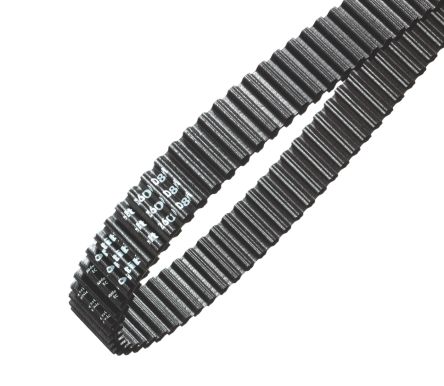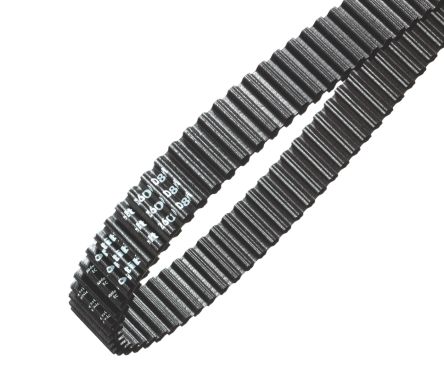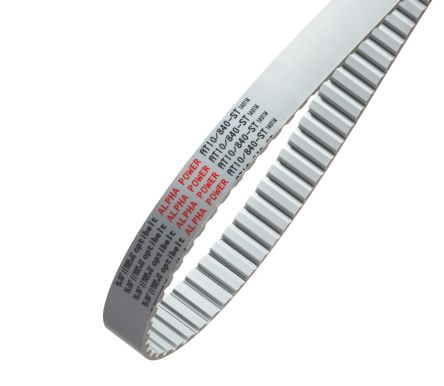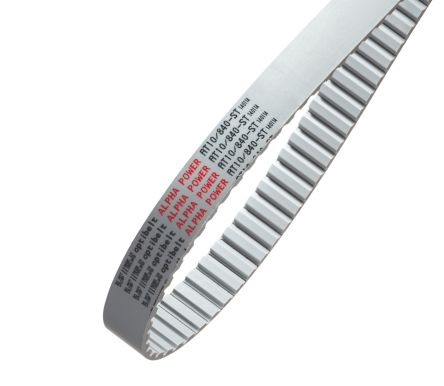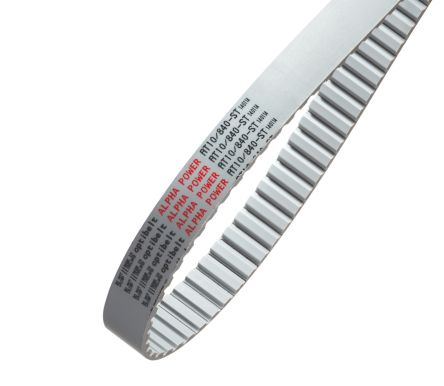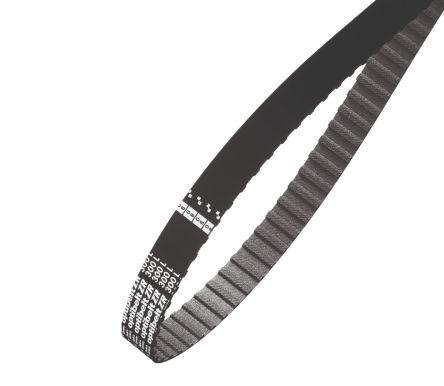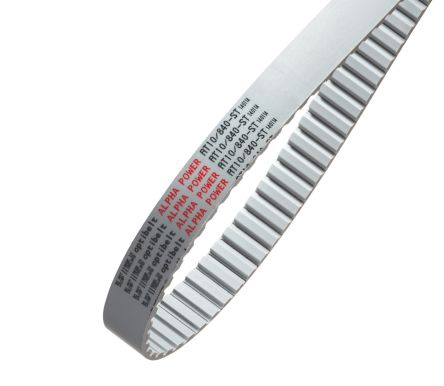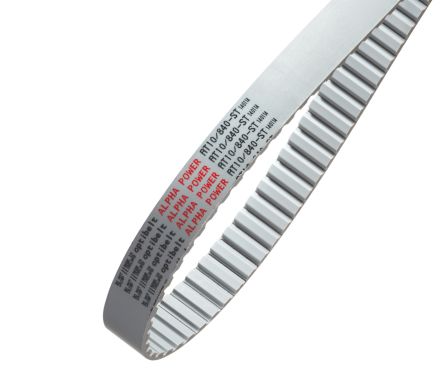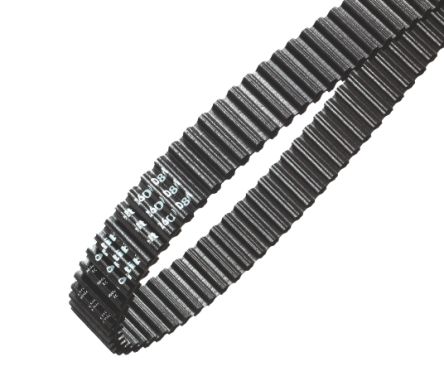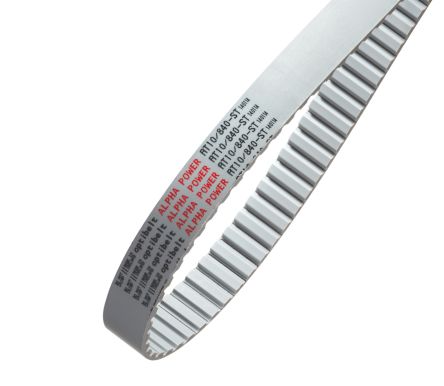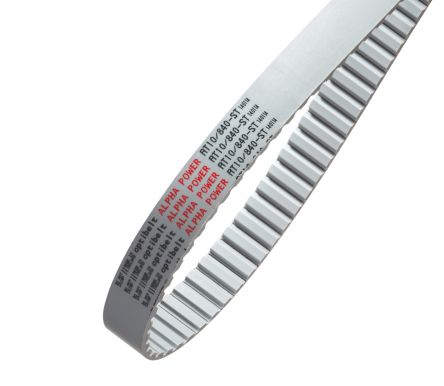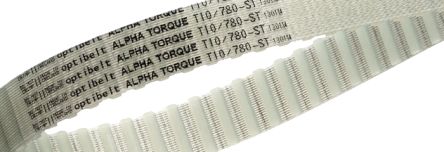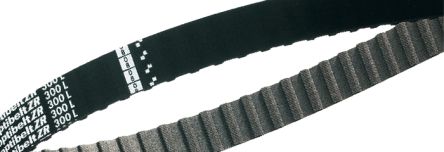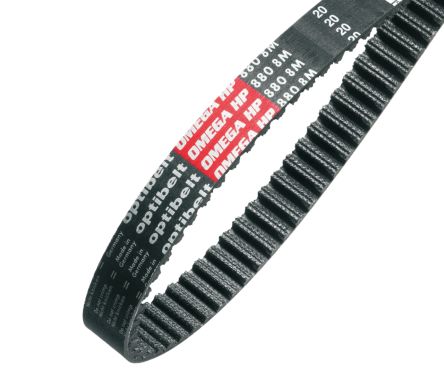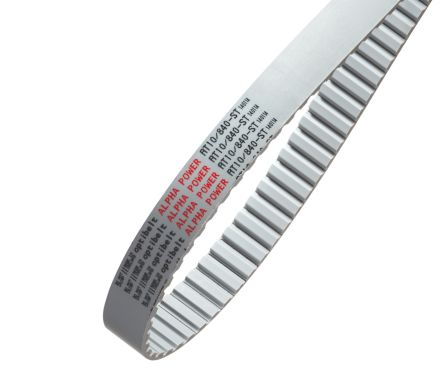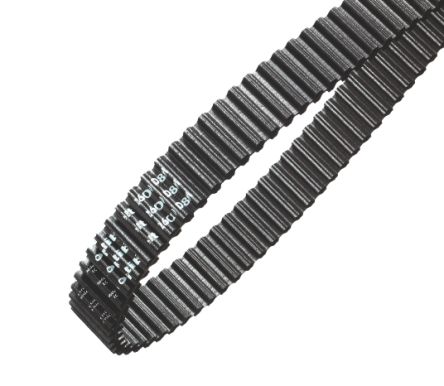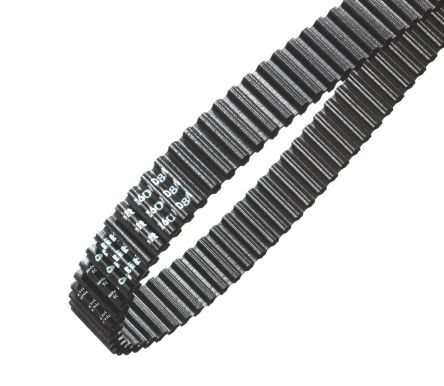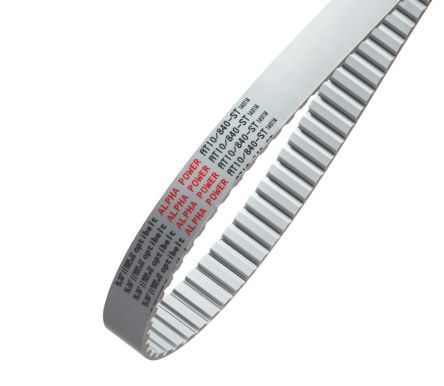- Automation & Control Gear
- Cables & Wires
- Enclosures & Server Racks
- Fuses & Circuit Breakers
- HVAC, Fans & Thermal Management
- Lighting
- Relays & Signal Conditioning
- Switches
- Batteries & Chargers
- Connectors
- Displays & Optoelectronics
- ESD Control, Cleanroom & PCB Prototyping
- Passive Components
- Power Supplies & Transformers
- Raspberry Pi, Arduino, ROCK, STEM Education & Development Tools
- Semiconductors
Timing Belts
Timing Belts, also commonly known as a Timing chain or a Cambelt (although the latter is technically a different type of system, as we'll see), are devices usually found fitted to the rotary mechanisms of a power transmission system such as a drive motor or spindle.
They're most often found playing a highly critical role in the smooth running of internal combustion engines such as those found within cars, where they connect the crankshaft to the camshafts to maintain the precise alignments (timings) between these two key components as they rotate at different - but consistent and relative to one another - speeds. Find out more in our guide to timing belts.
Types of Timing Belts
Timing belts can be manufactured in a range of materials depending on what application they will be used for. Often these belts are constructed from rubber which gives excellent benefit to its user, due to its hardwearing nature. Although rubber timing belts must be frequently maintained and have their tension checked to ensure they are performing at optimum efficiency. The mixture of rubbers flexibility and elasticity paired with durability and performance under tension make them an industry-standard material.
Which Timing Belt do I choose?
When choosing a timing belt, many sizing variables such as width, rotation speed, pitch and timing belt tooth profile or belts with teeth, all need to be taken into consideration dependent upon the application.
Do Timing Belts need replacing?
Timing belt replacement will be needed, as rubber compounds will degrade with time due to excessive heat and contact with substances such as oil. For optimum performance the cambelt will need to be replaced.
Applications
There are a wide range of industrial applications where timing belts and cambelts are used daily in different products and processes:
- Office machinery
- Conveyor belts
- Electronic data processing equipment (EDP)
- Textile machinery
- Wood processing machinery
- Machine tools
- Compressors
- Printing machinery
- Hydraulic gear pumps
- Building machinery
